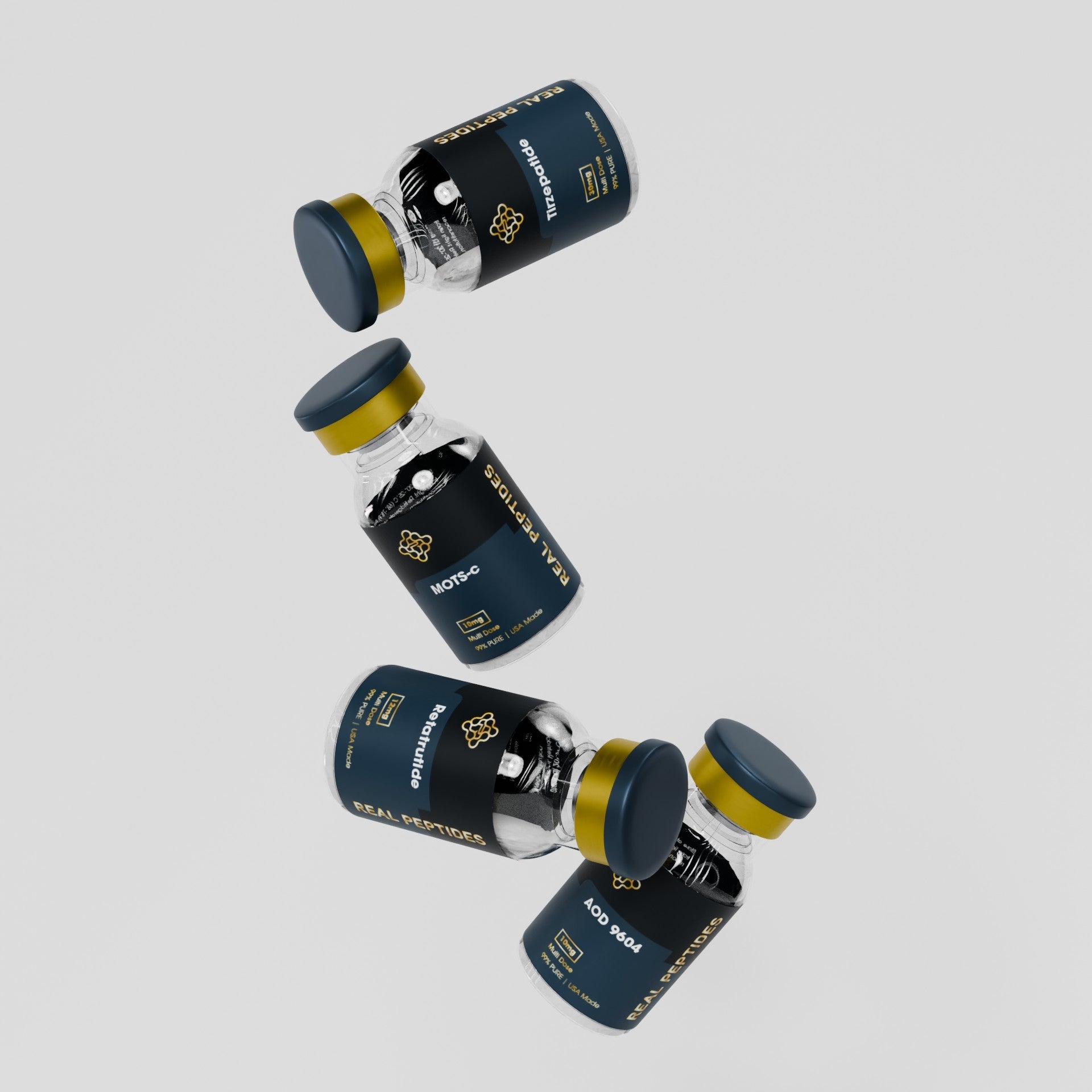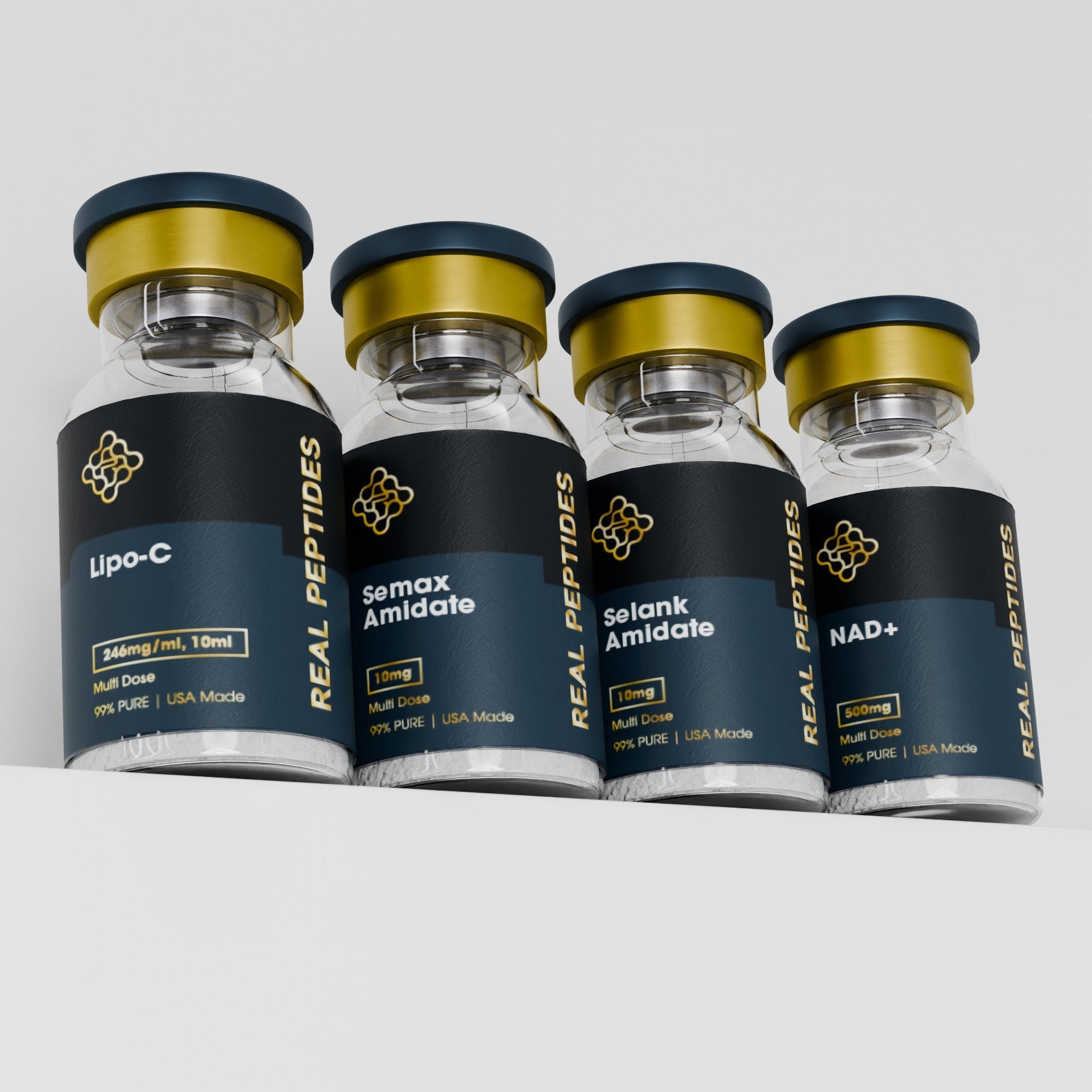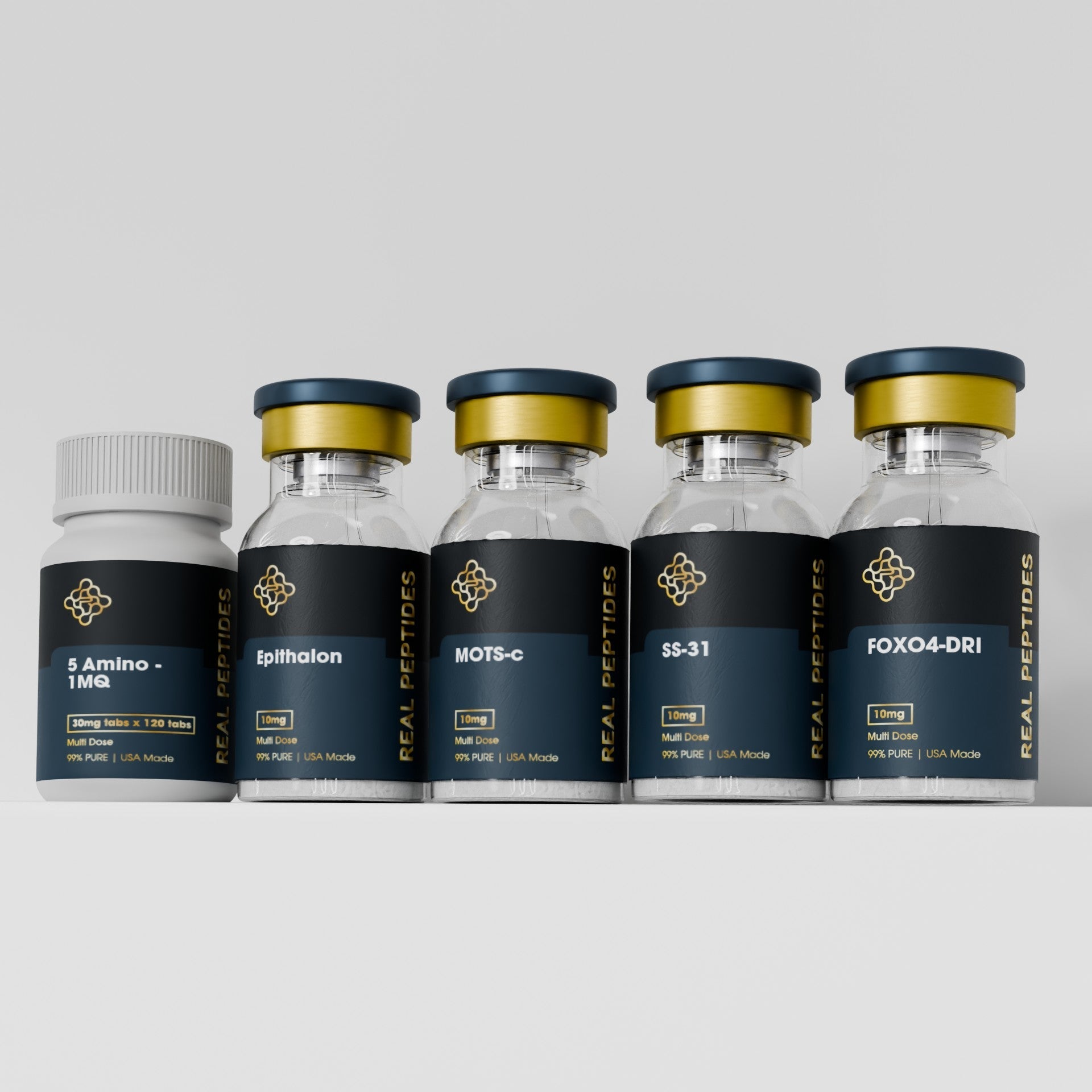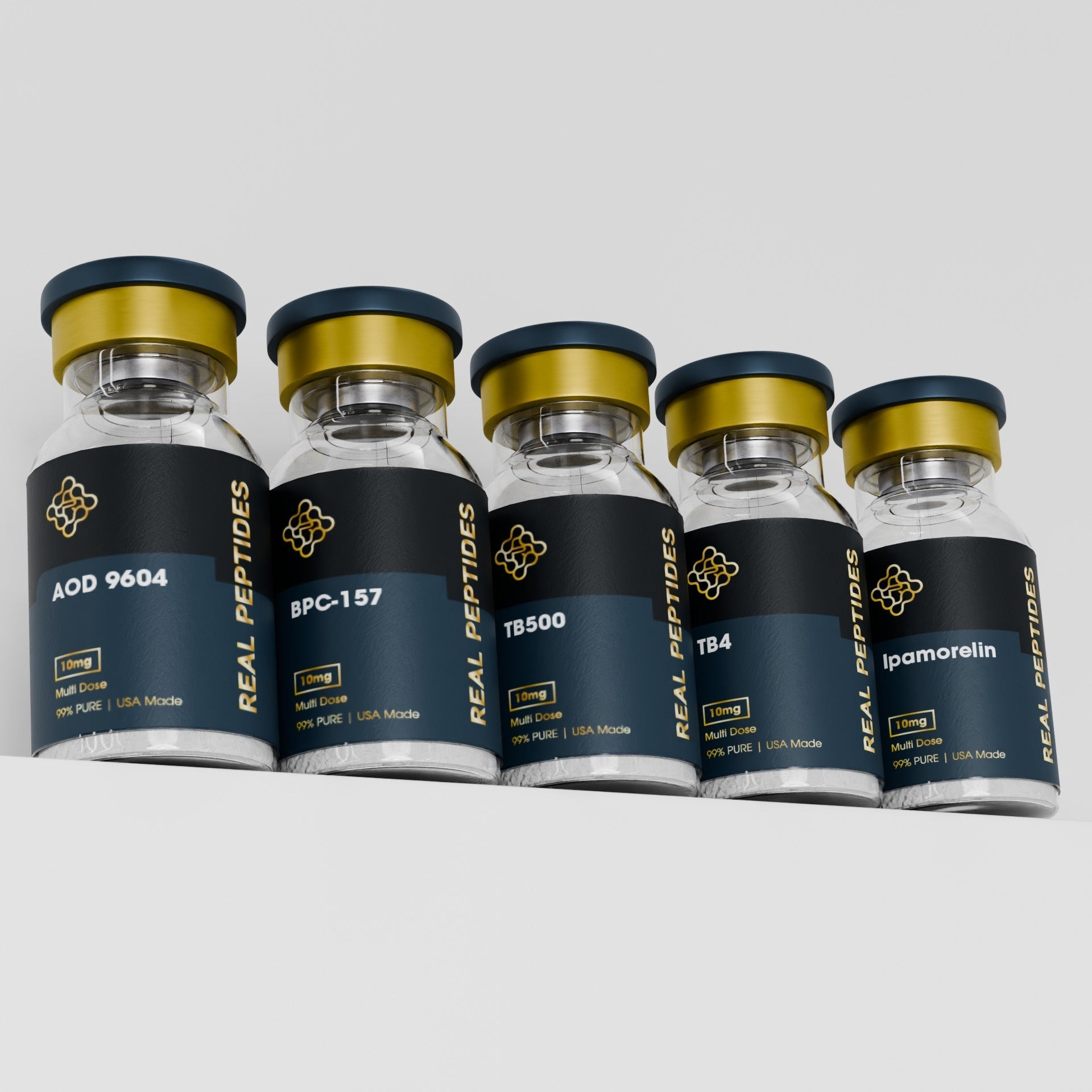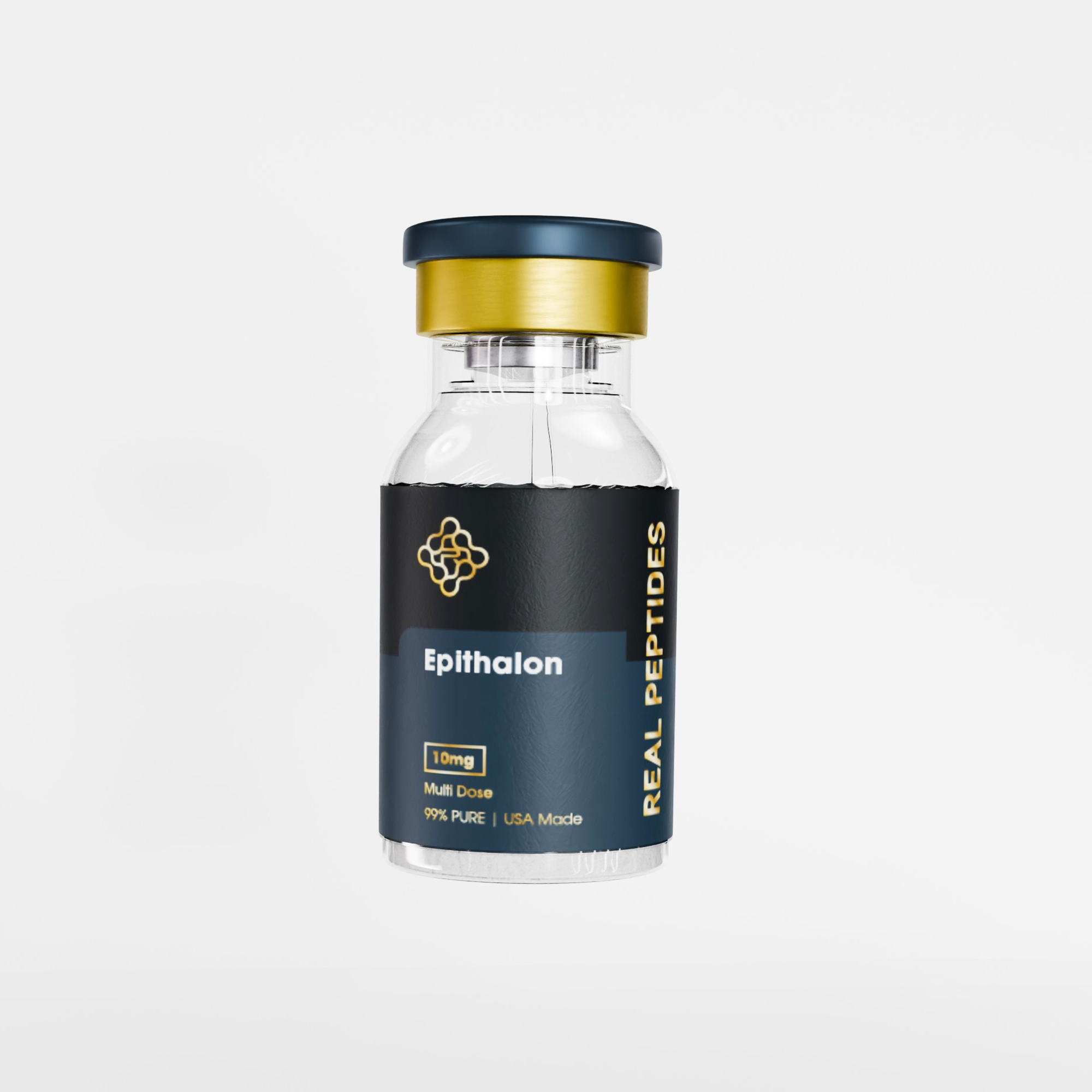
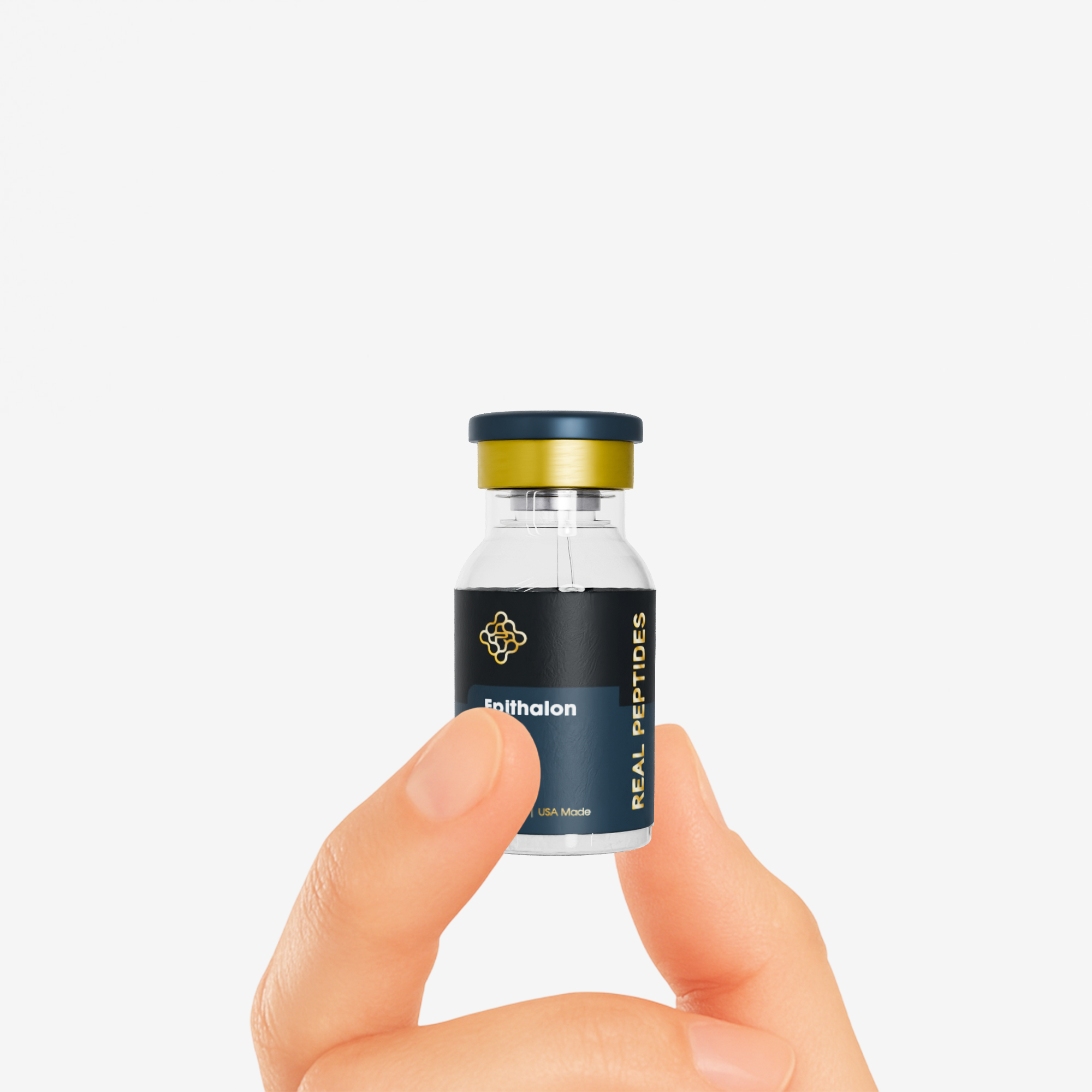
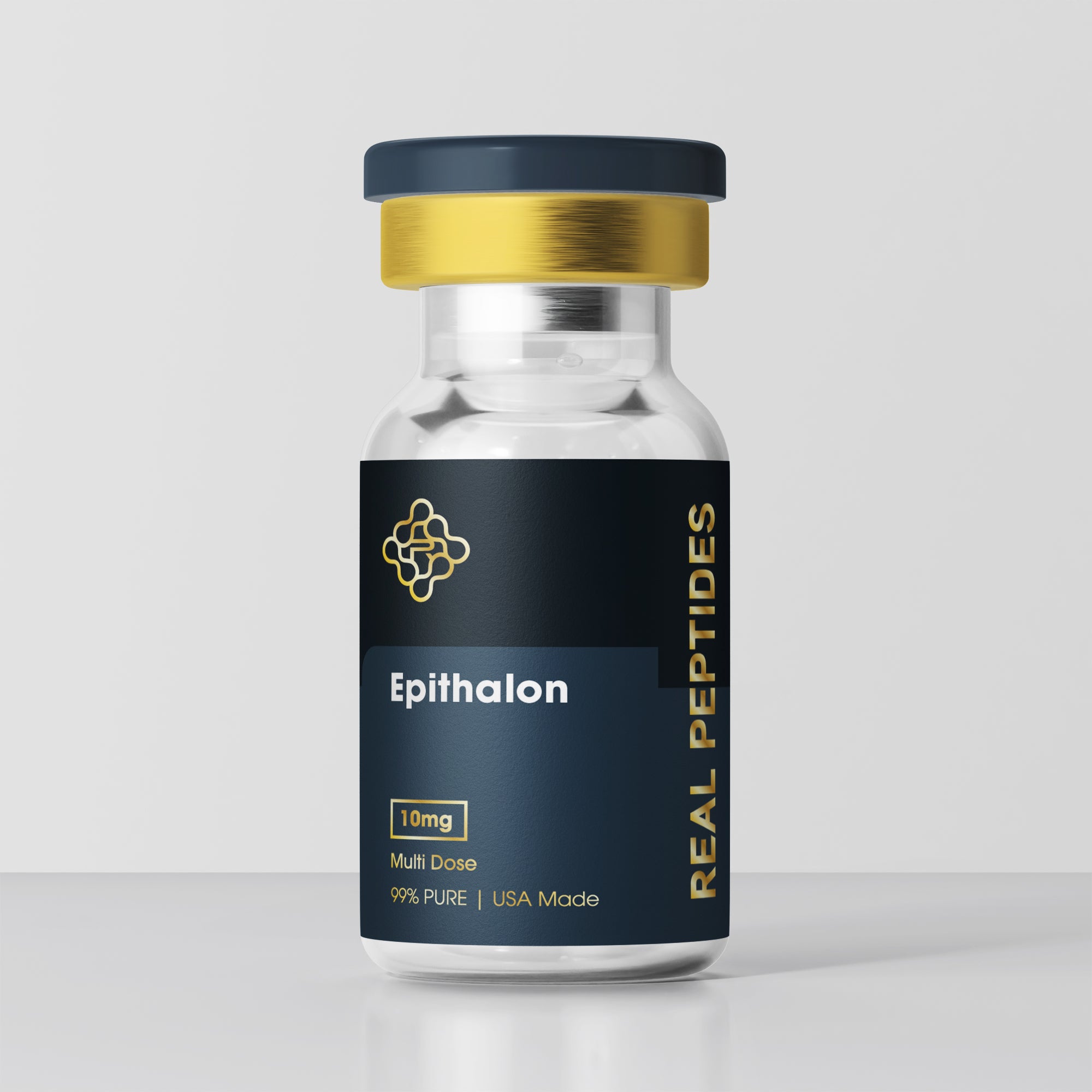
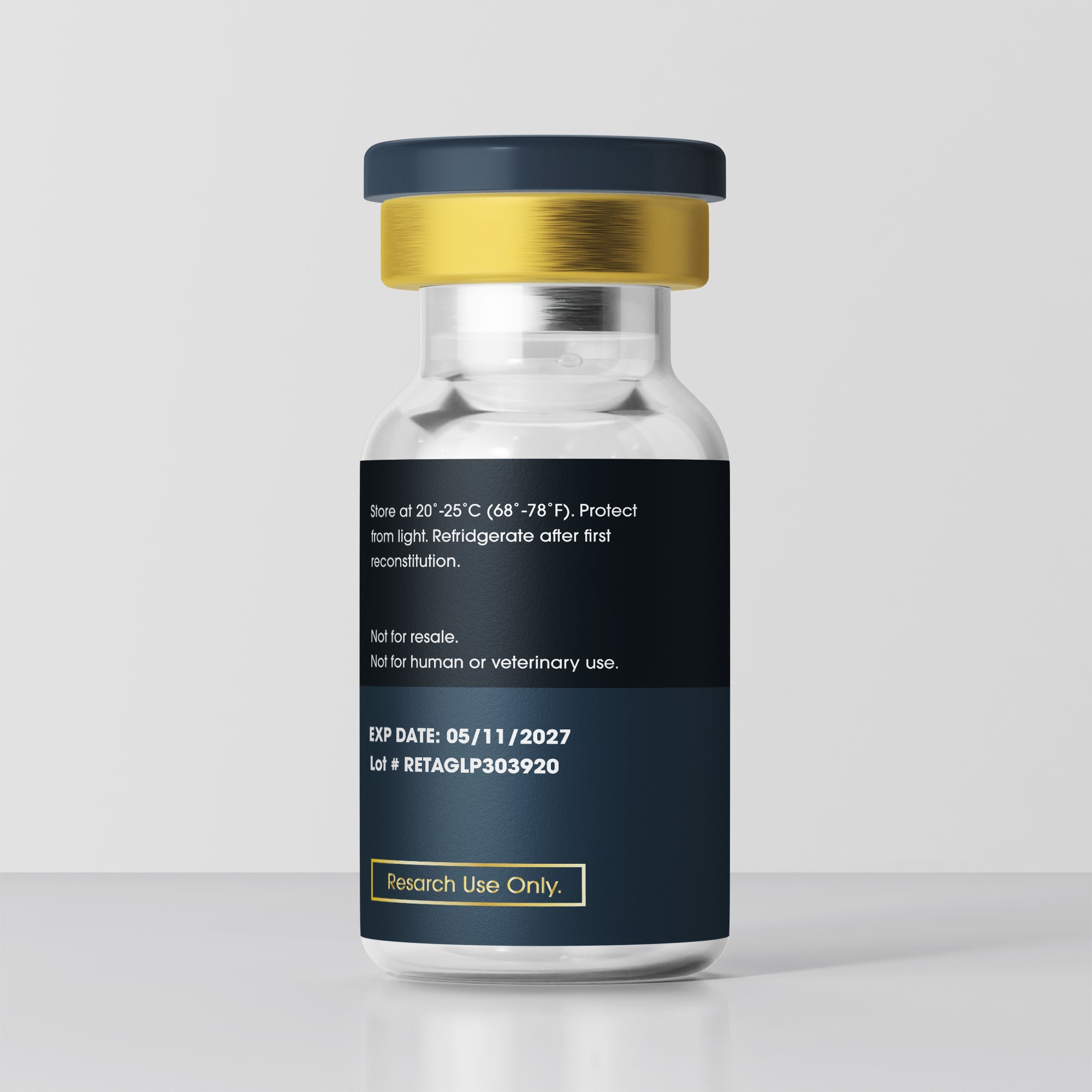
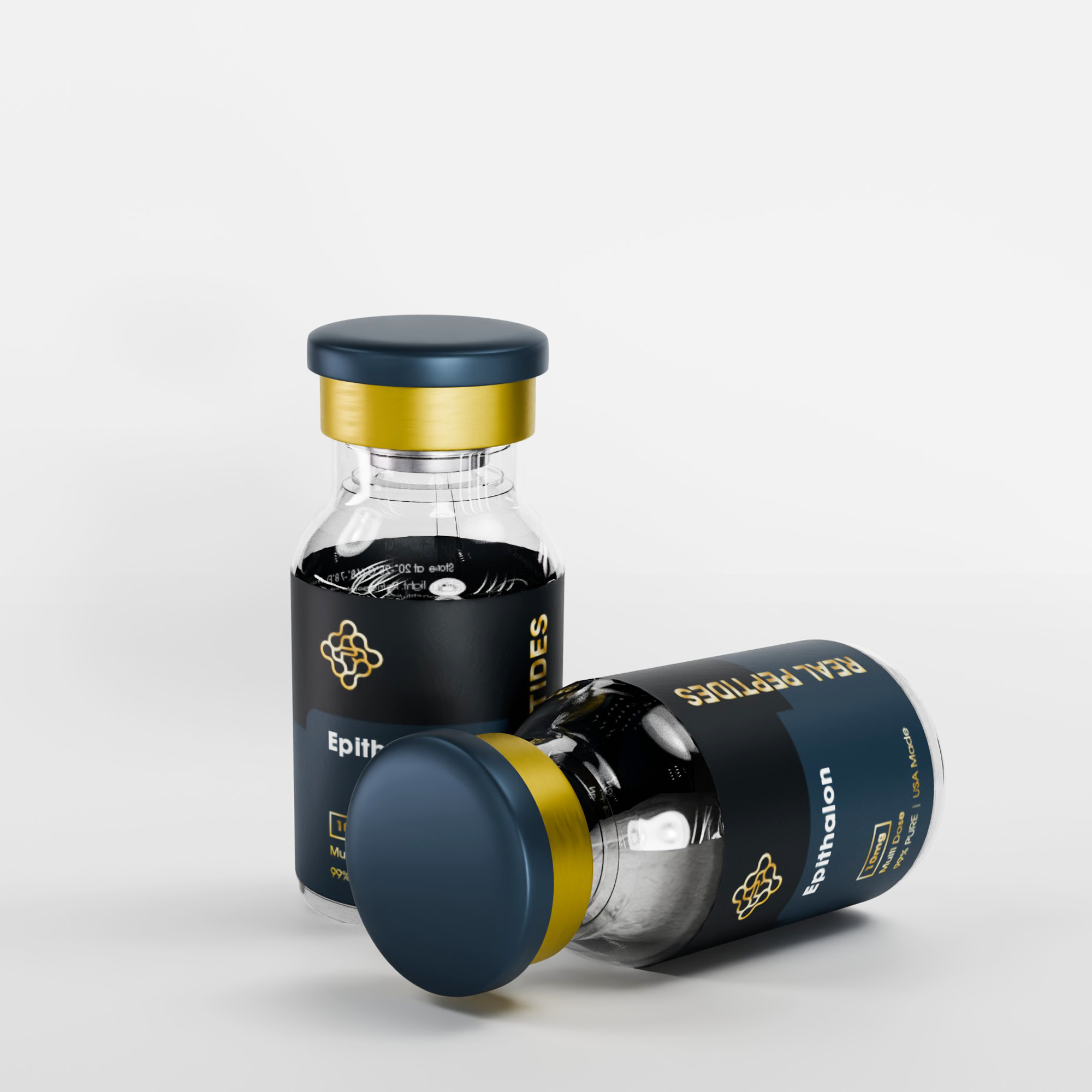
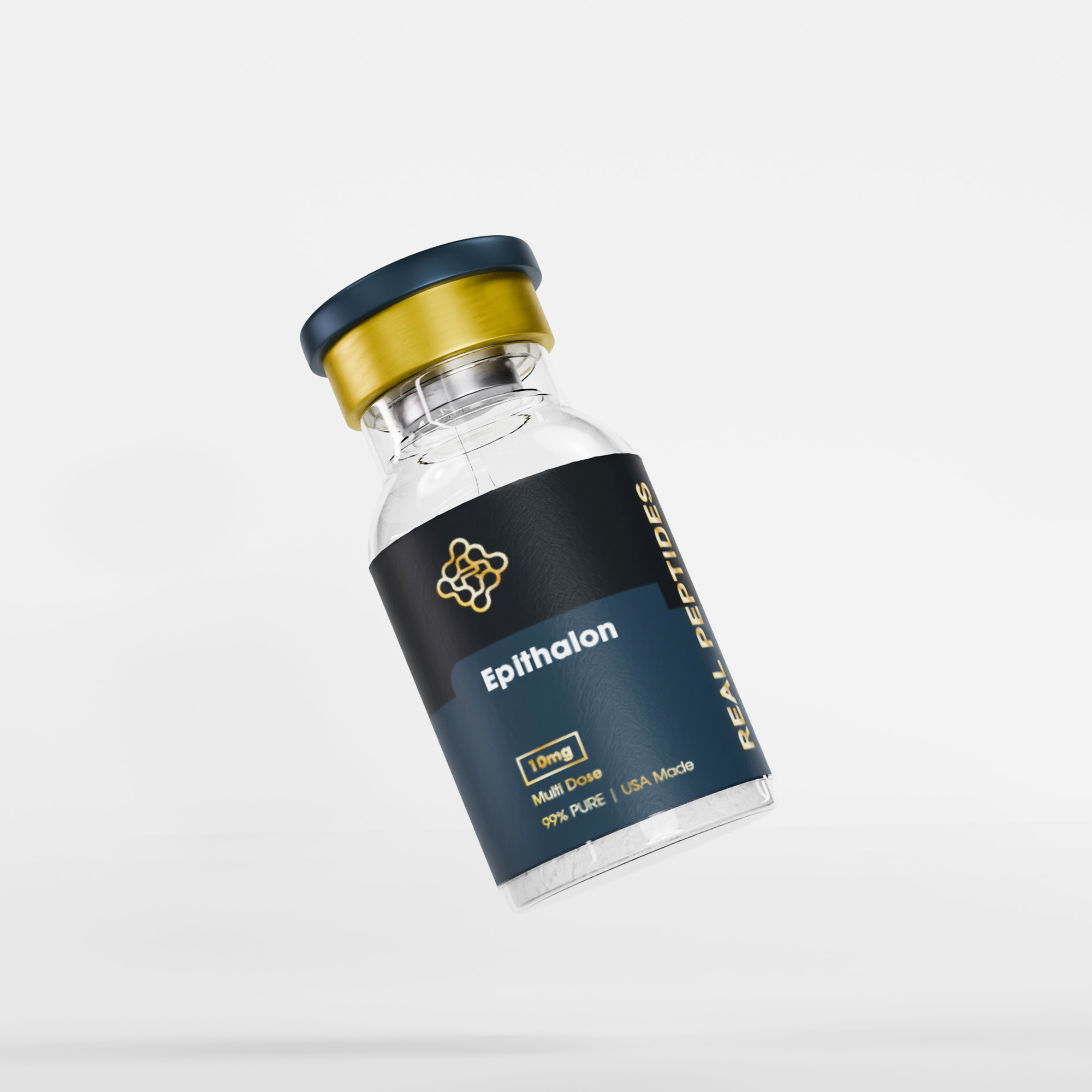
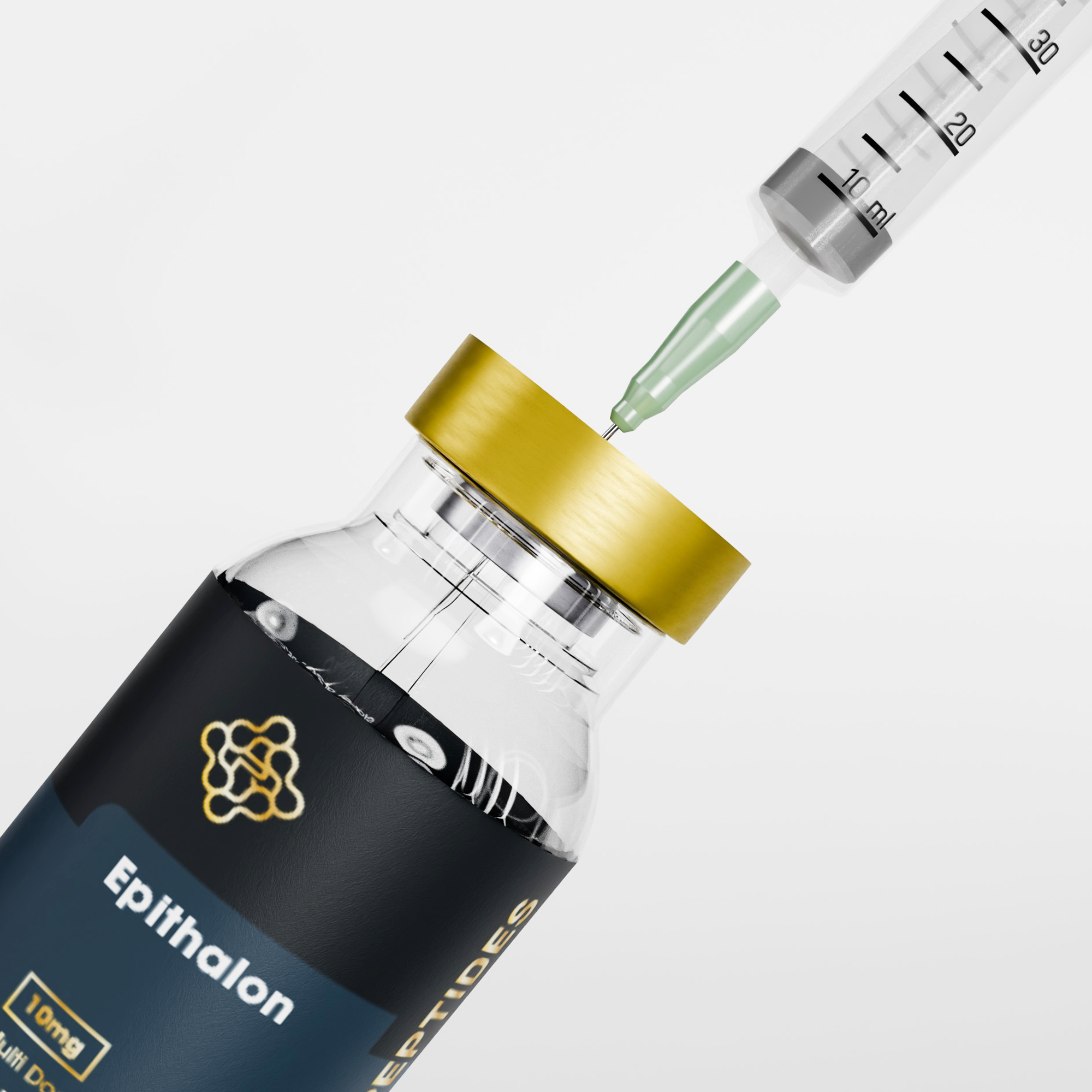
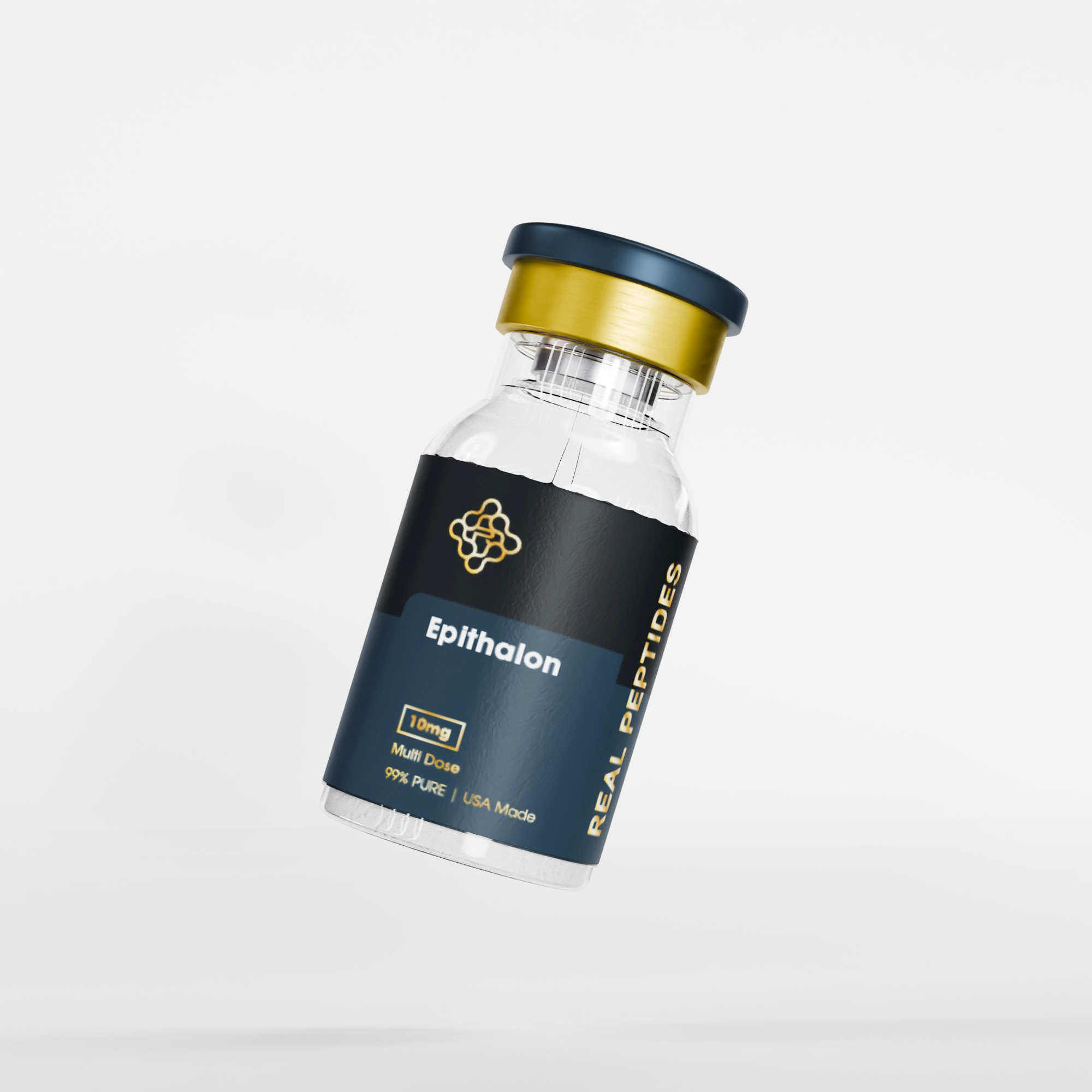
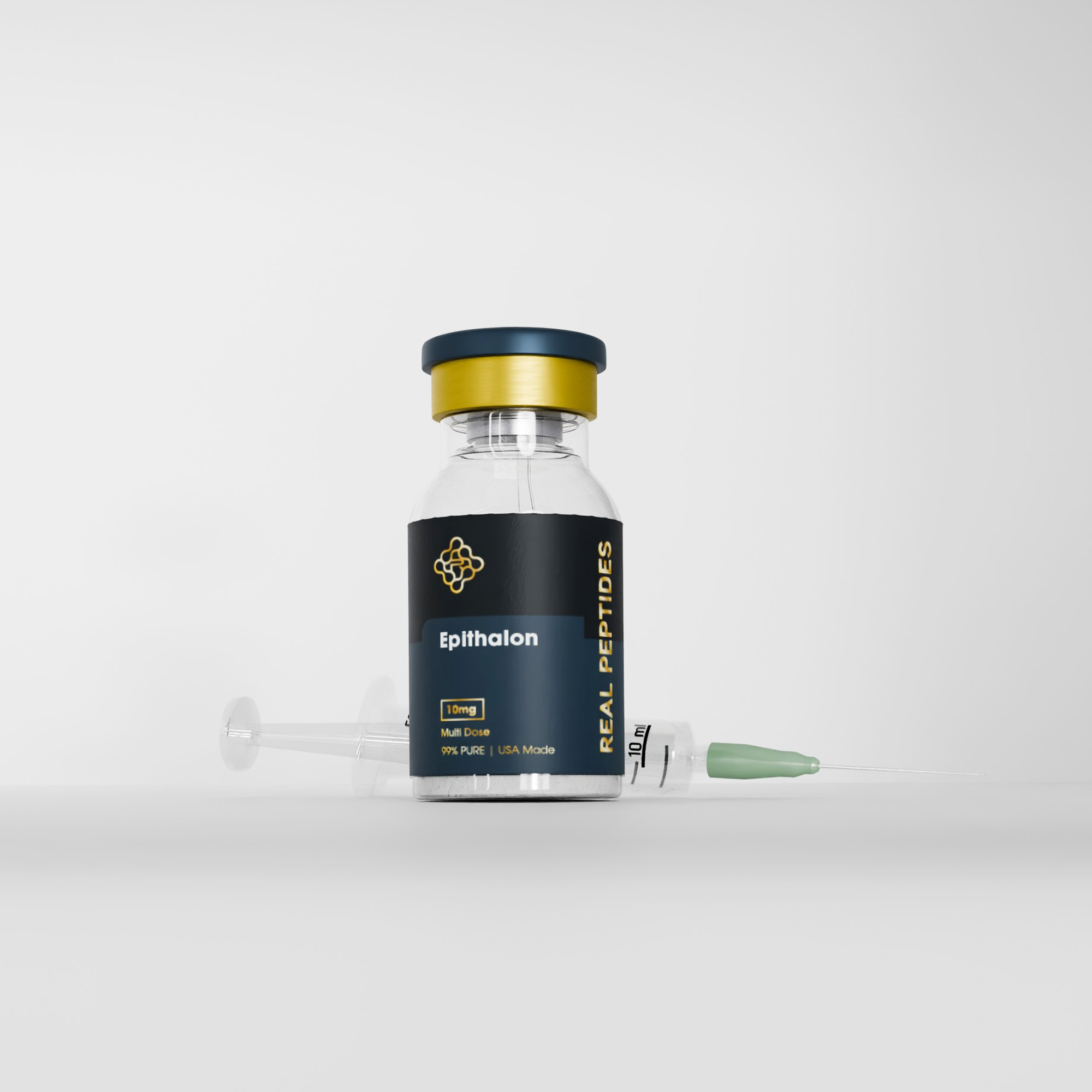
Epithalon
Epithalon is a four-amino-acid synthetic peptide (Ala-Glu-Asp-Gly) that labs use to investigate telomerase activation, cellular senescence delay, and biomarker modulation in aging-related assays. In cell-culture and ex vivo tissue models, Epithalon boosts telomerase activity, supports normal cell-cycle progression, and helps explore antioxidant defenses—without any systemic hormone effects. Each 10 mg vial is USA-manufactured, HPLC-verified to ≥99% purity, endotoxin-screened (< 0.1 EU/mg), and ready for your protocols.
⚠️ Important Disclaimer
For Research Use Only. Not for human consumption or therapeutic treatment.
Pairs well with
Peptides are not ready to use. Must purchase BAC water for reconstitution.

Epithalon
Epithalon
KEY HIGHLIGHTS
Telomerase Activation
Epithalon upregulates telomerase enzyme activity in human fibroblast cultures, modeling telomere-length maintenance in aging studies.
Cell-Cycle Regulation
In senescent cell assays, Epithalon restores normal progression through G1/S phases, providing a tool for cell-aging protocols.
Antioxidant Pathway Support
Epithalon boosts expression of endogenous antioxidants (e.g., SOD, catalase) in epithelial models, aiding oxidative-stress research.
Gene-Expression Modulation
Epithalon alters key aging-related genes (p16, p21), enabling controlled studies of cell-survival and apoptosis markers.
Immune-Senescence Models
In lymphocyte cultures, Epithalon helps maintain proliferative capacity, offering a window into immune-aging and renewal pathways.
Lab-Friendly Prep & Stability
Dissolve in SWFI or BAC water; store lyophilized at –20 °C and keep reconstituted peptide at 2–8 °C for up to 7 days to preserve ≥98% integrity.


What Is Epithalon?
Epithalon (also called Epitalon) is a short, four-amino-acid research peptide designed to mimic a natural pineal gland factor. In preclinical models, it’s applied to cultured fibroblasts, epithelial tissues, and immune cells to study telomere dynamics, cell-cycle checkpoints, and oxidative-stress defenses—all key processes in cellular aging.

Why Choose Epithalon?
Researchers select Epithalon for its targeted action on the telomerase pathway and its ability to modulate cell-senescence markers without affecting hormonal axes. Its simple sequence ensures rapid cellular uptake, and its consistent performance in fibroblast and lymphocyte assays makes it a trusted tool for aging-biology protocols. Manufactured under ISO-certified conditions and verified ≥99% pure, Epithalon delivers reproducible, high-quality data for your telomere and cell-cycle studies.

What Sets Epithalon Apart?
Unlike larger peptides or small-molecule telomerase activators, Epithalon combines minimal sequence complexity with potent telomerase induction, letting researchers cleanly probe telomere maintenance and cell-cycle regulation. Its dual ability to support antioxidant defenses and normalize aging-related gene expression makes Epithalon an indispensable peptide for high-resolution cellular-aging research.
Epithalon FAQs
What is Epithalon peptide?
Epithalon is a synthetic four-amino-acid peptide (Ala-Glu-Asp-Gly) used in research to study telomerase activation, cell-cycle regulation, and cellular aging pathways.
How does Epithalon work in aging research?
In cell and tissue models, Epithalon upregulates telomerase activity, maintains telomere length, and modulates aging-related gene expression (p16, p21) to delay senescence.
What research applications use Epithalon?
Commonly used in studies of telomere biology, oxidative-stress defense, cell-cycle checkpoints, and immune-senescence in fibroblast, epithelial, and lymphocyte assays.
How do you reconstitute Epithalon for lab use?
Dissolve Epithalon powder in Sterile Water for Injection (SWFI) or Bacteriostatic Water (BAC) per your protocol, then store reconstituted solution at 2–8 °C for up to 7 days.
What storage conditions are required for Epithalon?
Store lyophilized Epithalon at –20 °C. Once reconstituted, keep at 2–8 °C and use within 7 days to maintain ≥ 98% peptide integrity.
Is Epithalon safe for in vitro and ex vivo studies?
Yes. Epithalon is manufactured under ISO-certified conditions, HPLC-verified to ≥ 99% purity, and endotoxin-screened (< 0.1 EU/mg) for research-grade reliability.
Can Epithalon be combined with other peptides?
Yes. Researchers often co-study Epithalon with peptides like GHK-Cu or BPC-157 to explore synergistic effects on cellular repair and anti-aging pathways.
What dosing ranges are typical for Epithalon assays?
Epithalon is usually tested from 100 nM to 10 µM in cell-culture studies, with dosages tailored to specific assay endpoints and model systems.
Does Epithalon affect hormone levels?
No. Epithalon’s primary action is on telomerase and cell-cycle genes; it does not directly modulate systemic hormonal axes in research models.
Where can I buy high-purity Epithalon for research?
Real Peptides offers Epithalon that’s USA-manufactured, ISO-certified, and verified at ≥ 99% purity—available for research use only.

